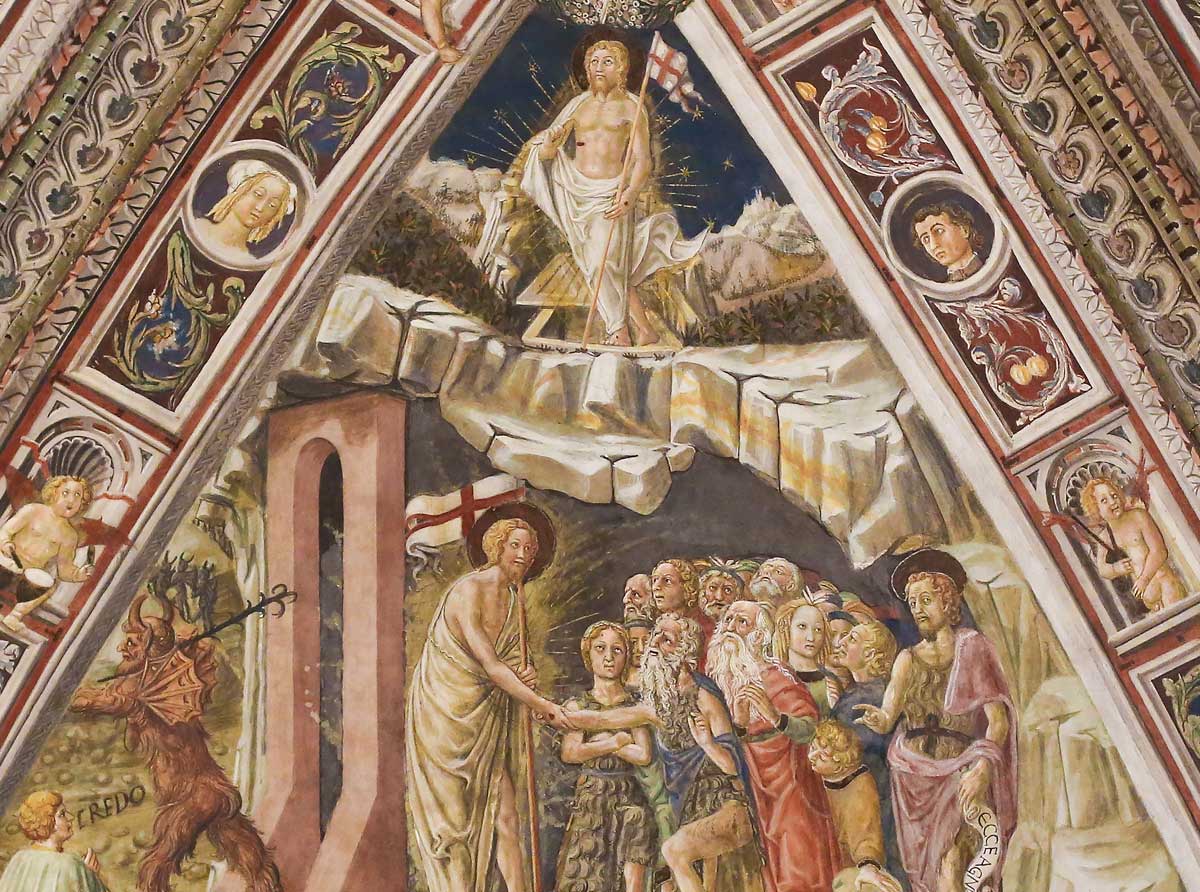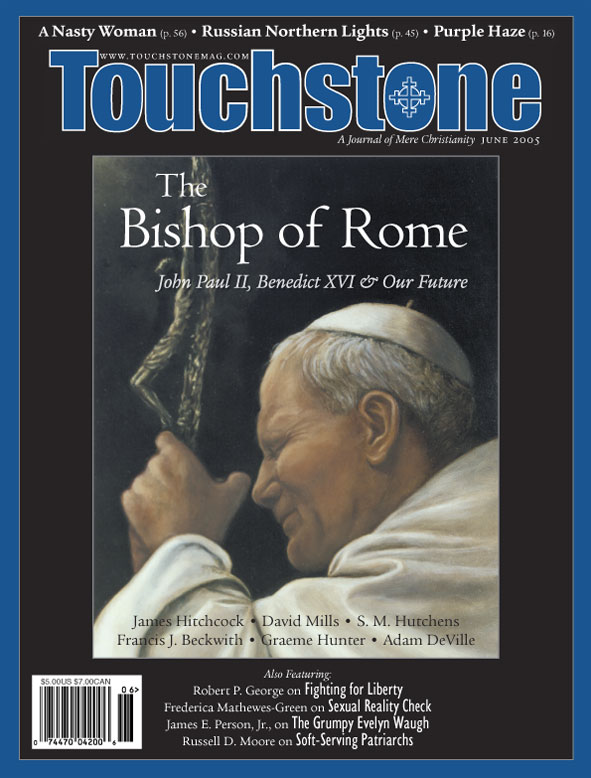View
Muddle America
Joseph M. Knippenberg on Why Red & Blue States Are Really Just a Purple Haze
Yes, we are a 50/50—well, 51/48—nation, Jonathan Rauch conceded in a recent issue of The Atlantic, but contrary to what many partisans and pundits say, the gulf between one side and the other is more like a gully (and perhaps a shallow gully) than a chasm. Following the sociologist Alan Wolfe's analysis in One Nation, After All—written to counter James Davison Hunter's famous Culture Wars—Rauch argues that "ordinary people mix and match values from competing menus." They are, as Wolfe observed, "above all moderate," "reluctant to pass judgment," and "tolerant to a fault."
Divided Elites
While there are recognizable extremes—on the one side, traditionalist Evangelicals who are in the pews every Sunday morning and in the fellowship hall every Wednesday night (who voted overwhelmingly for Bush) and, on the other, progressive secularists who wouldn't know what to do with themselves on Sunday if the New York Times didn't show up (who voted just as overwhelmingly for Kerry)—most Americans are firmly ensconced in the middle. As political scientist Morris Fiorina argues in Culture War? The Myth of a Polarized America, public opinion is closely, not deeply divided, resembling a bell curve much more than a bimodal dumbbell.
Why, then, the constant "culture war" drumbeat? According to Rauch, political and opinion elites are deeply divided, despite the fact that the rest of us aren't. The unintended consequence of the democratizing political reforms of the 1960s and 1970s was the rise of "candidate-centered" politics, which permitted those passionately devoted to particular policy positions to thrust themselves onto center stage. As a result, parties have become increasingly ideologically homogeneous, with liberal Republicans and conservative Democrats equally endangered species.
Further, with the art of partisan redistricting having become a computer-assisted science, politicians have been able to fashion echo chambers for themselves. Republicans represent largely conservative districts and Democrats largely liberal districts, each with little need to reach out to the other side in order to build a winning electoral coalition.
Most pundits gravitate toward this line of argument, either because they themselves are also ideologically pure (theoretical coherence is at least an aspirational hallmark of intellectual life, even if conformity to the real world isn't) or because conflict offers a more compelling and marketable storyline than consensus. (Rauch is the exception that proves the rule: His effort to stir up the oil underlying the troubled waters amounts to an attempt to put himself at odds with, in conflict with, the conventional wisdom.)
To be charitable, however, I wouldn't argue that Rauch wants to shout: "Look at me! I'm different!" He wants us to calm down and think about the capacity of our political system to accommodate and compromise on divergent points of view. Thus, in his conclusion he points to a paradox: "Though you would be partly correct to say that the mainstream parties have been taken over by polarized activists, you could also say, just as accurately and a good deal more cheerfully, that polarized activists have been taken over by the mainstream parties" (my emphasis).
Extremists who are co-opted acquire a stake in the system; they write speeches and compose party platforms rather than throw bombs. They eventually become responsible, willing to accept half a loaf, rather than massacring those who are dining in the mess hall.
Unstable Americans
I am nonetheless suspicious of Rauch's line of argument, not because I don't think it is an apt description of the current state of much of American public opinion, but because I'm not confident of its stability. What Rauch, Wolfe, and Fiorina celebrate as moderation, I'm tempted to call confusion. We Americans are not notably deep thinkers, an observation that goes back at least as far as Tocqueville, and a fact that is celebrated from time to time by conservatives and neo-conservatives suspicious of theoretical abstraction.
Joseph M. Knippenberg is Professor of Politics and Director of the Rich Foundation Urban Leadership Program at Oglethorpe University in Atlanta, Georgia. He is also an Adjunct Fellow of the Ashbrook Center for Public Affairs, on whose website (www.ashbrook.org) and weblog (www.noleftturns.ashbrook.org) he frequently posts.
subscription options
Order
Print/Online Subscription

Get six issues (one year) of Touchstone PLUS full online access including pdf downloads for only $39.95. That's only $3.34 per month!
Order
Online Only
Subscription

Get a one-year full-access subscription to the Touchstone online archives for only $19.95. That's only $1.66 per month!
bulk subscriptions
Order Touchstone subscriptions in bulk and save $10 per sub! Each subscription includes 6 issues of Touchstone plus full online access to touchstonemag.com—including archives, videos, and pdf downloads of recent issues for only $29.95 each! Great for churches or study groups.
Transactions will be processed on a secure server.
more from the online archives

14.6—July/August 2001
The Transformed Relics of the Fall
on the Fulfillment of History in Christ by Patrick Henry Reardon
calling all readers
Please Donate
"There are magazines worth reading but few worth saving . . . Touchstone is just such a magazine."
—Alice von Hildebrand
"Here we do not concede one square millimeter of territory to falsehood, folly, contemporary sentimentality, or fashion. We speak the truth, and let God be our judge. . . . Touchstone is the one committedly Christian conservative journal."
—Anthony Esolen, Touchstone senior editor








